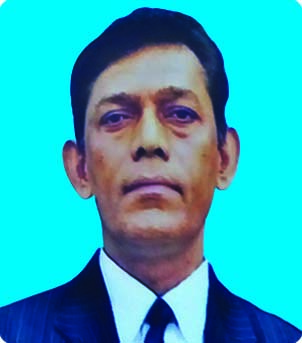Govt docs prefer pvt practice to main job

Absence of doctors in government hospitals and healthcare centres has become a common phenomenon as government doctors prefer private practice to their main job.
Most of the doctors remain busy with private practice and concentrate on their private hospitals or clinics instead of providing service to people as government service holders.
Besides, patients are deprived of proper healthcare services at different government hospitals like district sadar hospitals, upazila health complexes and community clinics across the country due to shortage of doctors.
As a result, people, especially those who live in rural areas, are being deprived of healthcare services as most of the government hospitals see the lack of doctors.
As an instance, Dr SM Ashraful Alam, resident medical officer (RMO) of Jibannagar Upazila Health Complex in Chuadanga district has been absent from work since May 2.
“The physicians and nurses of Jibannagar Upazila Health Complex do not come to the workplace regularly. Therefore, we always face serious difficulties in getting treatment. We the people here are always being deprived of treatment due to the frequent absence of physicians and nurses. Such attitude towards the patients cannot be tolerated at all,” a relative of a patient told Bangladesh Post.
When contacted, Chuadanga Civil Surgeon Dr Sajjat Hasan said the health and family planning officer will take action in this regard.
Our Meherpur correspondent adds: the 250-bed Meherpur General Hospital patients are deprived of proper healthcare services due to shortage of doctors.
Patients are returning from the hospitals without treatment. Rounds are not being given on time.
Talking to Bangladesh Post, Dr Zamir Md Hasibus Sattar, caretaker of the hospital, said they are unable to provide quality treatment to the patients suffering from various complicated diseases.
Apart from Chuadanga and Meherpur, the same grim scenario is prevailing in most government hospitals across the country.
While the patients are not getting proper treatment at government hospitals and clinics in rural areas, various high charges at different private hospitals are causing harassment to them every day anywhere in the country.
The doctors at upazila level hospitals and health centres have huge responsibilities for providing healthcare facilities to the people living in rural areas.
The rising cost of medical treatment is making the general people helpless in the country. In most cases, the physicians ask the patients to conduct unnecessary and irrelevant tests at their chosen clinics only to extract more money, patients and their families alleged.
The government has been working to provide healthcare services at the doorsteps of the general people in the rural areas of the country since 2009.
Apart from the general hospitals and upazila health complexes, the government has also set up community clinics across the country to reach health care services to the doorsteps of the rural people.
The government is appointing doctors in upazilas, but many of them do not want to stay at their workplace. Rather they live in Dhaka or other metropolitan cities somehow through manipulations.
The physicians have not refrained from prescribing unnecessary drugs for commission and they are not giving patient hearing to the people who suffer from various diseases in this regard.
The motto for establishment of any medical college should not be only for doing business, but rather health services have to be provided to the people with a helpful mentality.
The rate of out-of-pocket expenditure in the country was quite high compared to the world perspective.
When poor and middle income groups are bearing the brunt of price hike alongside reeling under unprecedented economic crises, increased per capita healthcare expenditure has added salt to the wound.
Bangladesh has a high prevalence of non-communicable, communicable and viral diseases such as cardiovascular ailments, diabetes and hypertension.
As millions of people suffer from these common health issues, it will be very difficult for them to bear their health treatment expenditure.
Many people are now avoiding medical procedures and tests due to expensive medication.
Most doctors do not attend their duties in government hospitals and clinics in rural areas as they are busy with practice at their respective private chambers and clinics situated in the cities and big towns.
Besides, there is an attitude among nurses that they will not serve patients as they have been promoted to second-class jobs.
Bangladesh Medical Association (BMA) President Dr. Mustafa Jalal Mohiuddin on the occasion of the 27th University Day of Bangabandhu Sheikh Mujib Medical University (BSMMU) said, “There are good aspects of our medical system, we always evaluate them. Likewise, there are some bad aspects that should also be evaluated.
According to Dr. Mostafa Jalal Mohiuddin it is true that, “Our doctors do their private practice. They can do that, it’s their right. But I realized and saw that some doctors went to their private chambers before 12 o’clock.
Earlier, the Minister of Health Dr. Samanta Lal Sen sounded a note of warning while addressing a discussion as the chief guest on the occasion of the 27th University Day of Bangabandhu Sheikh Mujib Medical University (BSMMU) saying that if any doctor goes out of the hospital for private practice during office hours, action will be taken against them.
He also said, “If any allegation of medical negligence is found against any doctor and proved, I will definitely take action against him. However, only the Bangladesh Medical and Dental Council (BMDC) has the right to say wrong treatment.
Noted that, since the 1990s, the number of private hospitals in the country has increased more than 20 times. At present, there are 640 hospitals at various levels, including government medical college hospitals, specialized institution hospitals, district or general hospitals and upazila hospitals. Besides, there are 7,854 registered private hospitals and clinics in the country, of which there are more than 179,000 beds, including 1,11,000 private beds and about 10,000 private disease control centres. There are 180 blood banks in the country. But patients are still not satisfied with the service.




